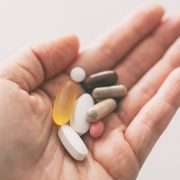The Complete Guide to Probiotics – Bacteria In Your Gut Make A Big Impact On Your Health
Best Probiotic For Gut Health; The Complete Guide
People ingest probiotics, which are active bacteria and yeasts, in food or supplement form in the hopes of enhancing their health. Still, a lot of people face issues in finding out which is the best probiotic for gut health. Probiotics function by affecting the number of bacteria that is normally present inside of us, which is estimated to number between 30 and 40 trillion.
It’s simple to automatically link bacteria to illnesses like acne or more serious diseases when you think about them. Bacteria come in both beneficial and extreme varieties, though. They can aid in the battle against harmful bacteria that could affect your health because they are comparable to the bacteria that naturally exist in your body.
Probiotics are a creature within your body that contribute to the microbiome, which is a collection of microorganisms including fungus, viruses, protozoa, and bacteria. The microbiome is crucial for immunity maintenance, enhancing gut health & avoiding heart disease. The urinary tract, skin, lungs, mouth, vagina, and gut all contain probiotics. Let’s dive into some probiotic health benefits to get a better idea about how beneficial probiotic supplements can be for us.
Some Probiotic Capsules Uses And Benefits
The probiotics benefits are plentiful. Out here we’ve managed to list some of the benefits that are being searched for around the web.
1. Manages your body weight
It was discovered that low-grade inflammation caused by pathogenic bacteria and short-chain fatty acids, which are formed by the fermentation of carbohydrates by gut bacteria, affect metabolism and obesity.
Strains of probiotics Adipose (belly) fat, body weight, and weight growth may be decreased by using Lactobacillus gasseri, Lactobacillus rhamnosus, and the combination of L. rhamnosus and Bifidobacterium lactis The microbiome has been demonstrated to have a major impact on body weight, body fat distribution, and central hunger and food reward signaling.
2. Nutrients Are Better Absorbed
The intestines are where up to 90% of nutritional absorption takes place. Poor vitamin absorption rates are a major problem with gut dysbiosis (an abundance of harmful microorganisms in the digestive tract). In order to promote nutrient digestion and absorption, probiotics aid to improve the bacterial and acidic environment in the gut.
Nutrient absorption and distribution take place in the gut wall-lining microvilli, which are tiny finger-like projections. There are numerous probiotics uses including the transport of proteins that carry nutrients from the digestive system to the body’s cells for use.
3. Beneficial For Your Heart Health
Our gut microorganisms have an impact on how permeable our intestinal lining is. Waste materials produced by gut microbes can leave the gut and enter the bloodstream if the gut lining is damaged.
A higher risk of atherosclerosis, cardiac failure, and hypertension has been associated with this. Intestinal metabolites from the gut microbiota communicate with other bodily organs via metabolites they create. It has been demonstrated that these metabolites have an impact on bodily inflammatory processes connected to cardiovascular health.
4. May Better Your Mental Health Condition
In both animal and human trials, probiotic supplements have already been proven to aid in the alleviation of several mental health issues. One study found that consuming probiotics for 8 weeks helped to lower C-reactive protein levels, a sign of inflammation. The dietary supplement also assisted in lowering the levels of particular chemicals, such as insulin, that assisted in lowering the incidence of depression.
5. Contains Antioxidant Properties
Studies on the antioxidant benefits of probiotics in food and supplement forms have been conducted. A decrease in oxidative cell damage and a positive effect on the body’s antioxidant enzymes are additional advantages.
Superoxide dismutase, an effective free radical that damages cells, may be decreased by the lactic acid in Kimchi, a spicy pickled cabbage dish from Korea.
How to Choose A Good Quality Probiotic Supplement for You
1. Beware of specific binders and fillers
Read the list of additional ingredients on the label. If you are sensitive to these components, some commercial probiotic supplements may produce unpleasant side effects, such as gas an
d bloating. These supplements may also contain unwanted binders and fillers, such as lactose or cornstarch.
2. Pick a storage strategy you can maintain
Some probiotics must be kept in the fridge, particularly if they have been heat-dried. If you can store it in your fridge, be sure to remember to take it out regularly and eat it when it’s time. Some formulations can tolerate being left out at room temp since they are freeze-dried.
3. Identify the strains you require
Before choosing your probiotic, discuss any medical problems with your doctor or dietician. According to recent studies, some bacterial strains may be able to alleviate the symptoms of IBS, IBD, antibiotic-associated diarrhea, acute infectious diarrhea, and other types of diarrhea. For instance, it has been claimed that Lactobacillus rhamnosus GG can shorten the duration of symptoms associated with acute infectious diarrhea and antibiotic-related diarrhea. Additionally, a probiotic supplement containing a variety of species, such as Bifidobacteria, is advised for IBS patients rather than a probiotic with just the Lactobacillus bacteria.
4. Choose Probiotic Tablets With Slow Release And Gastric Coating
A carefully coated pill will also be used in the best probiotic supplements, whether it is “enteric-coated” or a “delayed-release” capsule. This indicates that the probiotics aren’t exposed to belly acid and bile because the capsule doesn’t break down as quickly as it reaches your stomach. Since there is no such thing as a guarantee in life, taking an enteric or delayed-release supplement is only a small extra measure to ensure that the bacteria enters your large intestine alive.
5. Choose dairy-free
Find a dairy-free probiotic that has the amount of each strain of Lactobacillus and Bifidobacterium that has been clinically researched, ideally at least 30 billion CFUs overall, with information regarding the product’s manufacturing date or expiration.
FAQs
1.How long do probiotics remain in the body ?
Your gut bacteria will most likely recover to their pre-supplementation state in about one to three weeks if you stop taking them. If you feed the good bacteria then you might be able to see changes that endure longer.
2. If you’re having probiotics, do you need to drink a lot of water?
Drink plenty of water. Given the numerous advantages of being hydrated, this is sound advice in general, but it’s also essential to getting the most out of your probiotic supplement.
3. Can probiotics be consumed with coffee?
Coffee should be sipped cold. According to the studies, experts suggest that the heat and acidity of coffee typically kill probiotics. This implies that merely putting a probiotic supplement in hot coffee may actually nullify any health advantages.
4. What are the benefits of picking Good Gut?
It contains 20 bn CFUs, six key probiotic strains, green apple, chicory root, and other all-natural components that have undergone clinical investigation. Bloating and other digestive irritations can be avoided with the help of this strong combination.
5. Who can take Happy Tummy? Are there any age restrictions?
For people who want a healthier gut and are suffering from digestive problems, Good Gut is recommended. It is best to speak with your doctor before ingesting the product if you are lactating, pregnant, diabetic, or on any drugs. We do not recommend that anyone under the age of 18 consume this product. There are no negative side effects from using our vegan and all-natural products.















